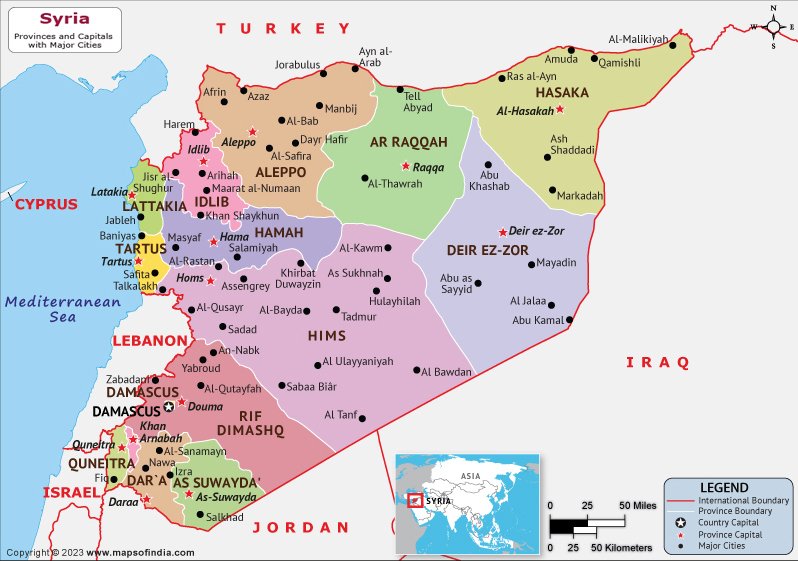
シリア政権崩壊、大統領はロシア亡命
日本語
シリアのアサド政権が崩壊し、反体制派が首都ダマスカスを含む広範囲を制圧しました。アサド大統領は辞任し、ロシアへ亡命しました。この政権崩壊は中東全体に大きな影響を与え、シリアの主要支援国であるロシアとイランにとっても打撃となっています。一方で、イスラエルはゴラン高原周辺の緊張に対応し、軍を配備(イスラエルとシリアの国境付近)しました。バイデン米大統領は政権崩壊を歴史的な好機と捉えつつ、過激派組織「イスラム国」(IS)の台頭を警戒しています。



反体制派の主要勢力であるシリア解放機構(HTS)はダマスカスを占拠し、暫定政権の移行に向けたプロセスを進めていますが、国内外の複数勢力が主導権を争う可能性があります。外国勢力による介入も懸念されており、特に米国とイスラエルは情勢を注視しています。トランプ前大統領はシリア問題への関与を否定し、バイデン政権も介入を控える姿勢を示しています。
ヨーロッパや中東諸国は混乱や過激派の台頭を警戒し、安定した移行期間の重要性を強調しています。特にトルコは、シリア難民の帰還を視野に平和的な政権移行を支援する意向を示しています。しかし、派閥間の争いが激化する可能性が高く、シリアの安定には時間がかかると予想されています。このような状況下で、シリアの領土保全や社会経済的再建が課題として浮上しています。
English
The Assad regime in Syria has collapsed, with opposition forces taking control of large areas, including the capital Damascus. President Assad has resigned and fled to Russia. This regime's downfall has significant implications for the entire Middle East and deals a blow to key supporters of Syria, including Russia and Iran. Meanwhile, Israel has deployed troops near the Golan Heights to address regional tensions. U.S. President Joe Biden described the collapse as a historic opportunity while cautioning against the resurgence of the extremist group ISIS.
The main opposition faction, the Syrian Liberation Front (HTS), has occupied Damascus and is advancing the process toward a transitional government. However, multiple domestic and international actors are likely to compete for dominance. Concerns over foreign intervention are rising, with the U.S. and Israel closely monitoring the situation. Former U.S. President Trump rejected involvement in Syria, and the Biden administration has also refrained from direct intervention.
European and Middle Eastern countries are wary of instability and the rise of extremism, emphasizing the importance of a stable transitional period. Turkey, in particular, has expressed its intention to support a peaceful transfer of power and facilitate the return of Syrian refugees. Nonetheless, the potential for factional conflict remains high, and achieving stability in Syria is expected to take time. Under these circumstances, territorial integrity and socioeconomic reconstruction emerge as critical challenges for Syria’s future.
